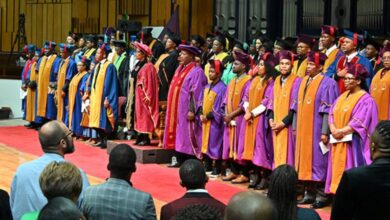The Impact of Digitalization on Religious Organizations in Singapore

A pilot study has examined the impact of digitalisation on religious organisations in Singapore, highlighting significant changes in community operations, particularly in response to the COVID-19 pandemic. Traditionally anchored in physical spaces, these religious communities have increasingly adopted digital media platforms, raising important questions about the implications for conventional practices and community engagement.
Pandemic’s Influence on Digital Tools
Conducted in collaboration with the NUS Asia Research Institute (ARI), the study aimed to assess whether the pandemic expedited the use of digital tools within Singapore’s religious organisations. The results indicated a marked increase in digital platform usage among groups previously unengaged with such technologies, especially among non-Muslim and non-Christian organisations. In contrast, those organisations already utilizing digital methods, largely Christian and Muslim, reported heightened engagement during the pandemic.
Variation in Digital Transition
The research revealed that not all religious activities transitioned to online formats uniformly. Synchronous activities, which necessitate real-time participation—such as prayers, rituals, and meetings—were less frequently digitalised than asynchronous activities, which encompass administrative tasks. Most organisations reported effective digital adaptations for administrative functions, including the dissemination of announcements, collection of donations, and distribution of educational resources. However, they predominantly retained traditional in-person formats for essential communal activities.
Concerns Over Privacy and Public Exposure
The hesitancy to fully digitalise synchronous activities reflects concerns over privacy and public exposure in the digital landscape. Participants conveyed mixed feelings about the ramifications of digitalisation, pointing out how it complicates the boundaries between public and private spheres. This concern underscores the complexities of online interactions, where personal communications may unintentionally reach broader audiences through live streaming and social media.
Legal Frameworks and Religious Practice
Historically, legal frameworks regarding religious practices have presupposed a public context for religious engagement. Findings from the study suggest that substantial legal adjustments may be necessary to adapt to the evolving nature of these practices as digitalisation continues to advance. Nevertheless, critical religious events that are intrinsic to specific faith traditions remain cautious about moving online, indicating a continuing attachment to the importance of physical space in religious observance.
Need for Further Research
Further research is warranted to explore the factors influencing the varying levels of digital adoption among different religious organisations and activities. Investigating the roles of doctrinal beliefs and theological considerations will be essential to understanding the limitations of technology in substituting for face-to-face interactions, which are fundamental to religious community life.
Implications for Community Interactions
This analysis of digitalisation within religious contexts offers insights into broader societal trends concerning technology and interpersonal relationships, raising significant questions about the future of community interactions in an increasingly digital environment.
(Source: NUS News)




